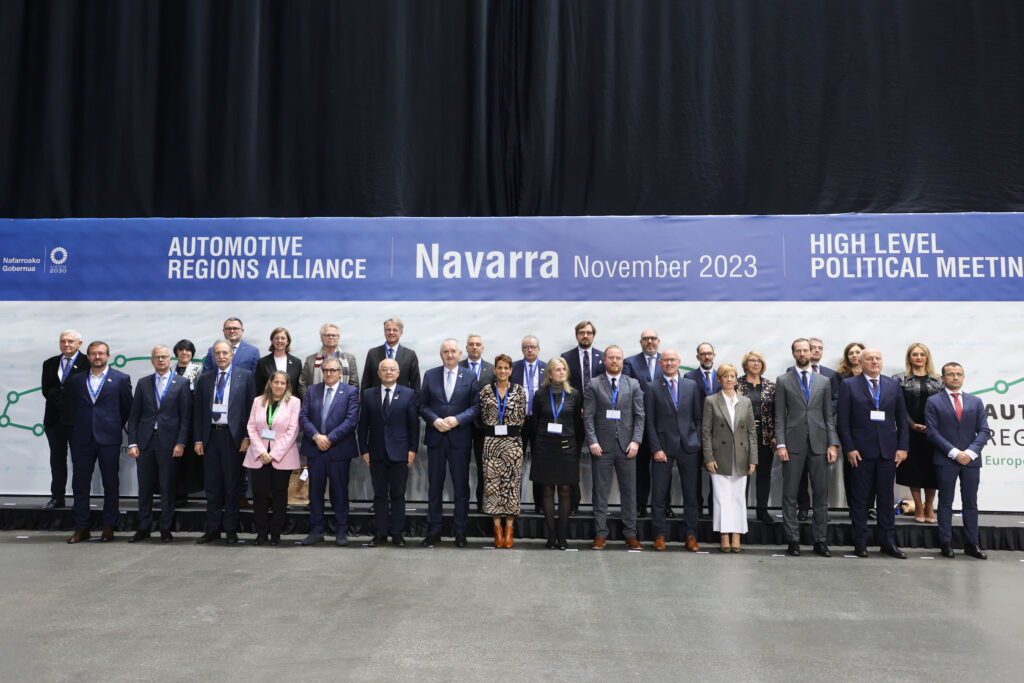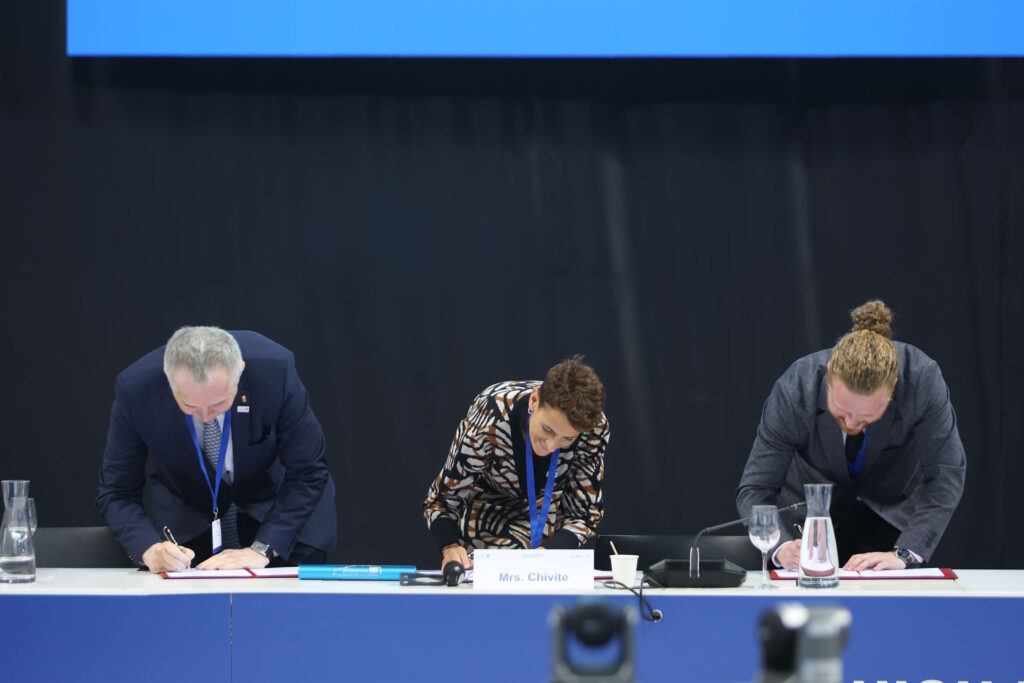On the 9th of November 2023 in Pamplona, in the region of Navarra, Spain, the Automotive Regions Alliance (ARA), the Interregional Group “Future of the Automotive Industry” of the European Committee of the Regions (CoRAI), and the Automotive Skills Alliance (ASA) have jointly expressed the aim to cooperate towards a just and sustainable transition of European automotive regions by signing the Working Agreement. This strategic partnership embodies a collaborative approach to address the challenges of the automotive-mobility ecosystem related to skills and the need for a qualified workforce.

For the second time, members of the ARA gathered at the occasion of the ARA´s second annual conference in Navarra, Spain, and put forward their proposals regarding the just and sustainable transition. The shift towards zero-emission and digitized vehicles is anticipated to have a significant impact on regional automotive ecosystems and socio-economic structures, as noted by members of the Alliance.
In Pamplona, 26 out of the 35 ARA member regions convened to highlight the concerns within their respective automotive sectors. They unanimously endorsed a declaration urging the establishment of a European mechanism in the upcoming Multiannual Financial Framework.
The goal is to address the disruptive effects of the ongoing transition and enhance the competitiveness of the entire European automotive industry. The Alliance stressed the importance of EU funding being collaboratively planned with regional and local stakeholders. Additionally, they proposed that the European Commission consider expanding allocations from the Just Transition Fund to encompass activities related to the transformation of the automotive industry.
According to the Navarra declaration signed during the conference, active involvement of all stakeholders, including through public-private partnerships, is crucial. The document emphasizes the necessity of directing resources and public initiatives toward training and reskilling efforts aimed at cultivating profiles in harmony with the evolving requirements of the industry and emerging production models. Furthermore, it urges the EU to utilize its funds to foster collaboration among industry, small and medium-sized enterprises, and research and education institutions. The Alliance also urges the European Commission to conduct a territorial impact assessment regarding the employment consequences resulting from the transition to a zero-emission automotive industry. This assessment should consider the varying impacts across regions and throughout the supply chain.

While the European automotive sector maintains a prominent role in global industry innovation, concerns were raised by regional leaders that without sufficient funding, supportive infrastructure, and workforce reskilling European automotive regions could potentially lag behind in this competitive landscape.
Members of the ARA, CoRAI and the ASA hence reached a consensus to jointly support a fair transition in automotive regions. Their collaboration aims to tackle the challenges of the automotive-mobility sector by advocating for increased backing for reskilling and upskilling regional workforces, promoting strategic regional projects, facilitating the exchange of best practices among automotive regions, and advancing the skills agenda. Throughout this collaboration, the focus will be on spotlighting regional challenges and implementing transformation strategies specifically tailored to regional needs.
The Working Agreement signed by the new chair of the ARA, the chair of the CoRAI and the president of the ASA, shows a strong ambition among European regions to collaborate and prepare for the impeding transformation.
ASA is committed to taking actions and developing projects that strengthen regional cooperation and focus efforts on finding solutions for the green and digital transition in the mobility ecosystem. In the ASA, we actively contribute to creating, implementing, and promoting a diverse range of skills knowledge to better prepare regions for the upcoming transformation. This includes continuous analysis of trends in the automotive, supply, and service sectors, defining future skills and job profiles, evaluating available training options, and identifying skill gaps. Additionally, ASA plays a crucial role in establishing a much-needed EU-wide framework for job profiles to manage the transition of the regional labor force.